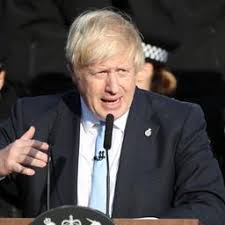The Political Journey of Boris Johnson

Introduction
Boris Johnson, the former Prime Minister of the United Kingdom and a prominent figure in the Conservative Party, has been a subject of significant discussion and analysis in recent years. His decisions and leadership style not only shaped national policy but also influenced global perspectives on Britain’s role in world affairs. Johnson’s political career, characterised by both acclaim and controversy, continues to be relevant in the current political landscape.
Political Career Overview
Johnson first entered the political arena as the Member of Parliament (MP) for Henley in 2001, later becoming the Mayor of London from 2008 to 2016. His tenure as mayor was marked by initiatives such as the introduction of the ‘Boris Bikes’ bicycle hire scheme and efforts to improve public transport. He gained national prominence as a prominent advocate for Brexit during the 2016 referendum, where he was instrumental in the campaign to leave the European Union.
Prime Ministership
After leading the Conservatives to a decisive victory in the 2019 general election, Johnson became Prime Minister. His administration was marked by significant events, including the final stages of Brexit, managing the COVID-19 pandemic, and ongoing debates regarding climate change policies. Under his leadership, the UK formally left the EU on January 31, 2020, a moment that was both celebrated and critiqued across the political spectrum.
Controversies and Challenges
Throughout his political journey, Johnson faced substantial challenges and controversies, including debates about his handling of the pandemic and allegations of ethical misconduct. The so-called ‘Partygate’ scandal, which involved gatherings at Downing Street during COVID-19 lockdowns, raised questions about his leadership and accountability. These events ultimately led to increased scrutiny and pressure from both the public and members of parliament.
Current Relevance and Future Outlook
As of late 2023, Boris Johnson remains a significant figure in UK politics, with ongoing discussions about his influence within the Conservative Party and the broader implications of his policies. His decisions during the pandemic, Brexit negotiations, and responses to international crises will likely continue to be analysed for their impact on the future of the UK. Amidst calls for reform in various sectors, Johnson’s legacy and the lessons learned during his tenure are of paramount importance for political commentators and the electorate alike.
Conclusion
The political journey of Boris Johnson serves as a crucial case study in modern British politics. As the UK navigates post-pandemic challenges and the complexities of international relations, understanding the choices and outcomes of Johnson’s leadership will remain essential for voters and historians alike. It will be interesting to see how Johnson’s political legacy evolves and what role he may play in the future of British governance.









